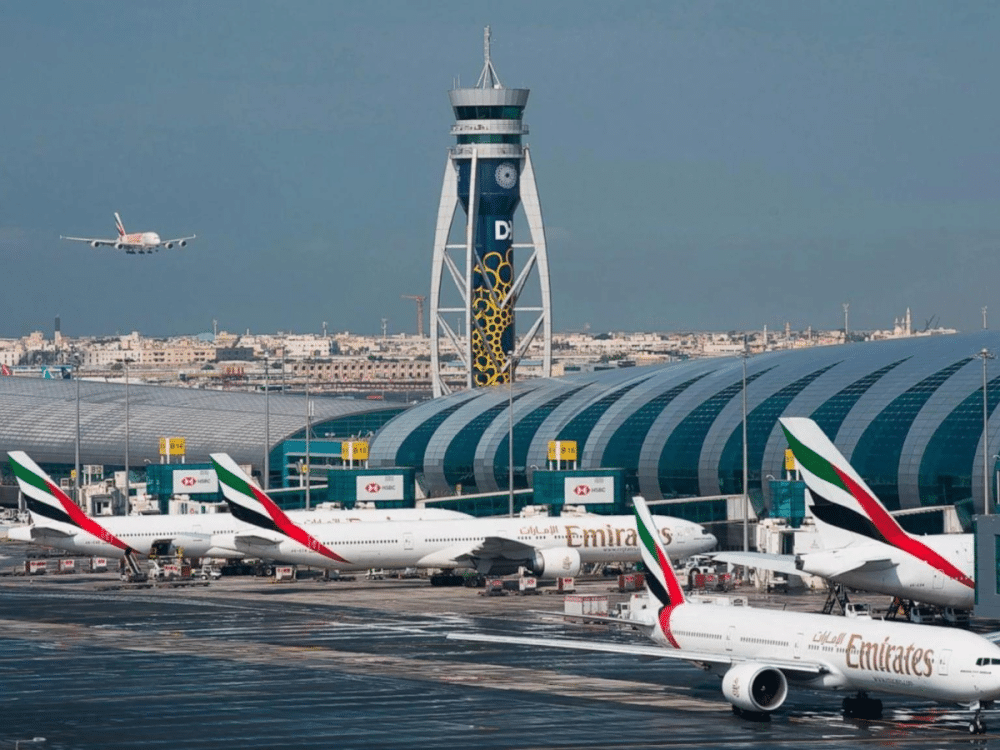Dubai International Airport (DXB), one of the world’s busiest travel hubs, has seen a fresh wave of flights cancellations today. This development has left travelers scrambling for information, with many unsure of what’s next for their journey. As tensions escalate in parts of the Middle East, temporary airspace closures have disrupted regional air travel.
Several airlines operating in and out of DXB, including Emirates, flydubai, Etihad, and international carriers, have suspended or rerouted flights. Many passengers are left waiting for updates, wondering whether their flight is next in line to be grounded. Although safety always comes first, disruptions like these highlight just how important it is to have a travel game plan.
Whether you’re already at the airport, packing your bags, or just woke up to a flight alert, here’s everything you need to know — and do — right now.

Why Flights Are Being Cancelled
The primary cause of today’s cancellations stems from geopolitical tensions affecting airspace safety over parts of the Middle East. Following escalations involving Iran, Iraq, Jordan, Syria, and Lebanon, aviation authorities have closed certain air corridors. This directly affects routes heading north and west from the UAE, forcing airlines to either cancel or dramatically reroute flights.
Flight paths that would typically cut through these regions are no longer available, meaning aircraft must take longer routes or remain grounded until new plans are approved. Some carriers may also be affected by aircraft and crew repositioning issues. As a result, even flights not headed directly to affected regions may be delayed or canceled due to knock-on scheduling problems.

Which Destinations Are Most Affected
Flights to and from several destinations are currently affected by these disruptions, including:
Baghdad, Basra, and other Iraqi cities
Tehran and other Iranian destinations
Beirut, Lebanon
Amman, Jordan
Damascus, Syria
Parts of Central Asia and the Caucasus
For connecting passengers, especially those using Dubai as a transit point, this means onward journeys to Europe, Asia, and Africa may also experience delays, rerouting, or even last-minute cancellations due to aircraft availability.
What You Should Do Right Now
If you’re traveling today, you’re probably wondering what to do next. The good news is that there are smart steps you can take to manage the situation and make your journey as smooth as possible.
Check for Real-Time Updates
Before you leave for the airport, check the latest status of your flight. Use your airline’s official app or website. These platforms are often updated before third-party tools. Additionally, live flight tracking websites like FlightRadar24 and Google Flights offer instant route and delay info.
Contact Your Airline Directly
If your flight is affected or marked as delayed or canceled, contact the airline immediately. Emirates and flydubai are offering flexible rebooking and refunds to passengers impacted by airspace disruptions. Etihad Airways and other carriers are offering waiver codes or alternate routes depending on availability.
Calling customer service can mean long wait times, so consider using web chat or the airline’s official social media accounts for faster updates.
Don’t Go to the Airport Without a Plan

Unless you’ve received confirmation that your flight is proceeding on time, it’s best to avoid heading to the airport prematurely. Airports become crowded quickly during large-scale delays, which only adds stress to the situation.
Use that time to rebook online, confirm your status, and explore hotel or lounge options if necessary.
Rerouting and Rebooking Options
Many airlines are offering alternative routing options for affected passengers. Depending on the situation, you may be able to fly through a different hub—such as Doha, Istanbul, or Riyadh—or wait until the flight schedule stabilizes.
Be open to changes. Some routes may become available last minute, while others may take longer to clear. If you’re traveling for a flexible purpose, consider rescheduling for a later date. This is especially wise if your route crosses through multiple affected regions.
Know Your Rights and Compensation Options
For passengers flying from or to the European Union, or those flying with EU-based airlines, you may be entitled to compensation under EU Regulation 261/2004 (EU261). This applies to cancellations within 14 days of departure unless extraordinary circumstances are proven.
Even if EU rules don’t apply, many airlines voluntarily offer accommodation, meals, and rebooking support in cases of significant delays or force majeure events.
It’s a good idea to keep all receipts in case you need to file a claim for meals, transport, or hotel costs. If you booked through a travel agency or booking platform, reach out to them for rebooking assistance or refund options.
Tips to Stay Comfortable During Disruptions
If you find yourself stuck at the airport or facing a long wait, these small but powerful actions can make a big difference:
Keep snacks and water in your carry-on. Food outlets may be busy or closed
Carry a portable charger or power bank to stay connected
Use your airline’s lounge if you have access—it can be a quiet place to wait or rebook
Stay calm and polite with airline staff. They’re often overwhelmed during crises and will be more inclined to help cooperative passengers
Also, check with your airline about hotel vouchers or compensation if you are grounded overnight.
What to Expect in the Coming Days
Flight disruptions may continue over the next several days depending on how the geopolitical situation unfolds. Airlines are working closely with international aviation regulators to adapt routes and ensure passenger safety. If tensions ease and airspace restrictions are lifted, schedules could normalize quickly. However, even temporary disruptions can have a domino effect for several days.
If your travel is not essential, consider delaying your trip. If you must travel, check back frequently for changes—even up to the hour of your scheduled departure.
For Future Travel: How to Prepare Better

The current situation is a strong reminder that flexibility and preparedness are crucial when traveling internationally.
Book flexible tickets whenever possible
Purchase travel insurance that covers cancellations and delays
Sign up for flight alerts and real-time notifications
Avoid tight layovers when booking connecting flights
Research visa-free alternate routes in case of sudden rerouting
Being proactive means you’ll have more control, even in unpredictable situations.
Final Thoughts
Flight cancellations from DXB today may feel overwhelming, but they don’t have to ruin your travel plans. Stay informed, act quickly, and keep an open mind about alternate options. While no one likes travel disruptions, how you respond can make a big difference in the outcome.
Use this moment to explore smart alternatives, practice patience, and prepare better for future trips. Whether you’re on business, heading home, or off for a vacation, smoother skies will return—and when they do, you’ll be ready.
Do follow UAE Stories on Instagram
Read More: Is it Safe to Travel to Dubai Amid Middle East Tensions?














